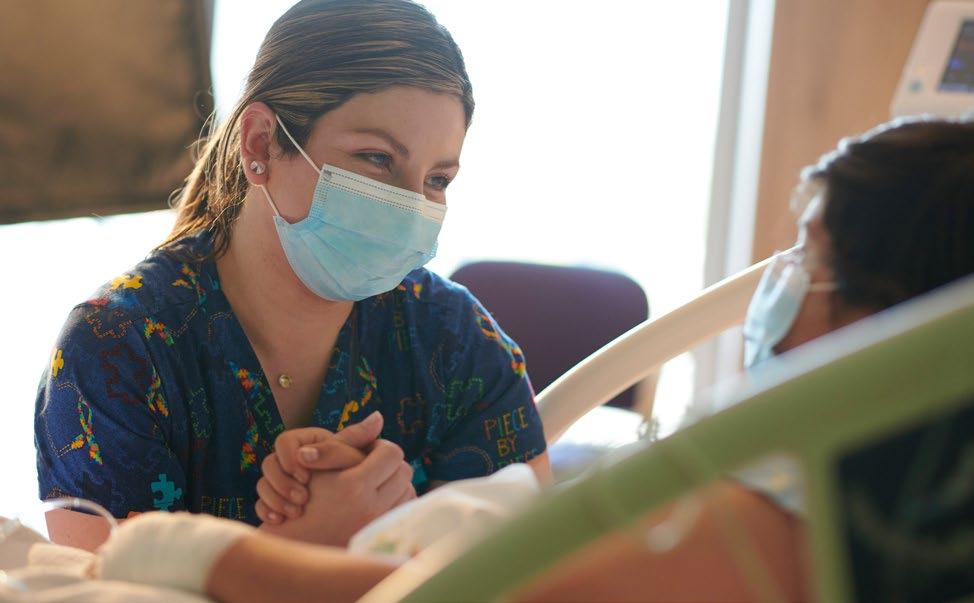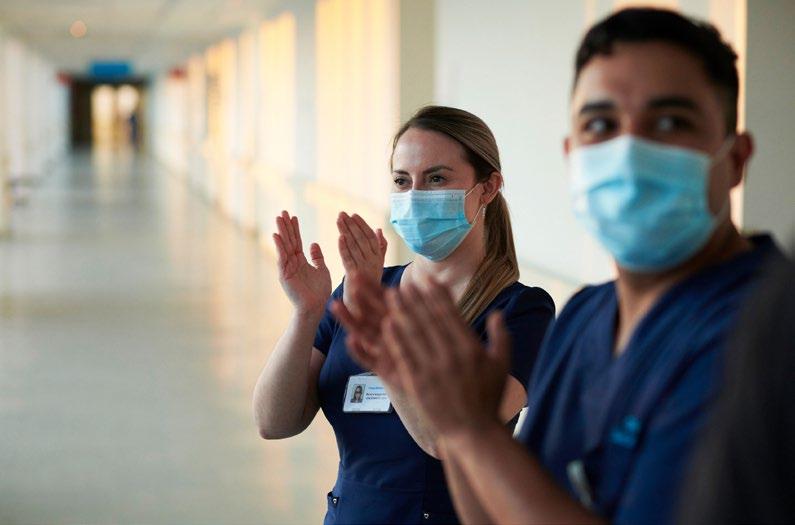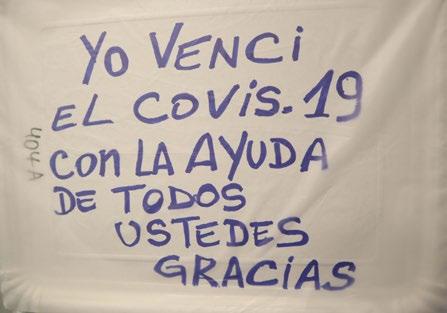
4 minute read
Professionalism and love, that’s our job
ximena báez Deputy Director of Nursing Bupa Antofagasta Hospital
I was born in the town of Iquique and have been a nurse for twelve years and worked in the company for ten years. I have been Assistant Manager of Nursing since October 2019. 2020 had started with a lot of problems because of the social crisis in Chile, and when we were just getting used to that, the pandemic hit. At the beginning, we just heard news that made us really unsure, and couldn’t really work out what was happening, and the Covid arrived to the clinic later than the rest of Chile, so the demand on us was very high. In mid-March our first patient arrived, then a second, and suddenly we had twenty. That was when we quickly extended our critical care units.
In April we were mid-pandemic, the emergency rooms were full and we could see that at any moment our system was going to collapse. We adapted critical care beds and split the hospital into Covid and nonCovid areas. A lot of people were off because of the risk and because of stress, in some cases, and we started to work with the team leaders to help them look after their teams. The team responded amazingly, even though nobody was prepared for this. We were sure of one thing, that we had to pull together to get through this. During this time I have really seen what it means to be professional and love your job, even when you are overwhelmed, tired, frustrated. Everyone has just wanted to give their best. I must say, I am proud of the team. Amongst the measures that we have taken to protect ourselves and avoid spreading the virus was to use safety equipment and social distancing, but the most effective thing has been reinforcing and insisting on these until you see the cultural shift. Around the end of April, beginning of May, we went through the most difficult time. The hospital in Calama asked us to take some of their patients but we didn’t have the capacity, and couldn’t make it happen in such a short time, because patient recovery is slow. It normally takes about two weeks. The critical patients are normally adults – older adults, but there are exceptions, like the first one we had – a young athlete who nobody understood why he needed to be intubated. He had no underlying
I am really thankful to the whole team.
illnesses, he wasn’t a smoker and his quality of life was good. That made us think that “nobody escapes from this”, or perhaps he just came to the hospital a bit late. So, when that patient was discharged, we had a real party, with applause, crying and all. It was very emotional, a precious moment, because he was the first critical patient who recovered. A newspaper photographer even came. It was a victory. Many patients who have recovered send us thank you messages, which is lovely. With everything we are going through, I couldn’t lower the intensity at work, and had to be at the hospital every day. Even at weekends. My husband is a doctor and we have a son of 4 years old, Andrés Emilio. The apple of my eye. While I was at the hospital, my son and my husband stayed at home, as my husband was able to have flexibility with his hours. Our nanny was also very supportive. She is like family to us. We had to be really careful at home because we knew that my husband or I could get sick at any moment and pass it to the other. I was ultra careful with everything, because I knew that whenever I came back from the hospital I could well be carrying the virus. I was careful and methodical when coming in, when staying and when going out, with lots of procedures in place.

ANTOFAGASTA — CHILE

I live near the clinic and walk to work through a park. At the start, there weren’t many people around, but then people started coming out again. It worried me to see people not distancing as they should, or little ones running around without masks. I would ask myself: What do we have to do to make people take this seriously? This has to stop soon. Soon we will be able to get together again, to celebrate all the missed birthdays and share again, but we can’t stop yet. All of this reminds me of when I was a student in university. I remember clearly that a professor of epidemiology told us about pandemics and the importance of the role of nurses as organisers and team leaders. He also talked about Florence Nightingale, who was in the Crimean War in the mid xix century and brought in organisation of areas, dirty here and clean there. She insisted on the importance of something as basic as washing your hands. She said: “Humanity is going to be 100 years late in giving value to nursing.”*

«I beat ‘covis.19’ with your help Thank you »








